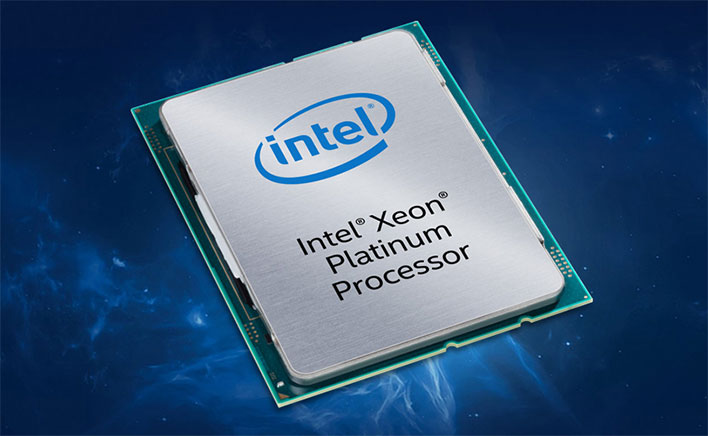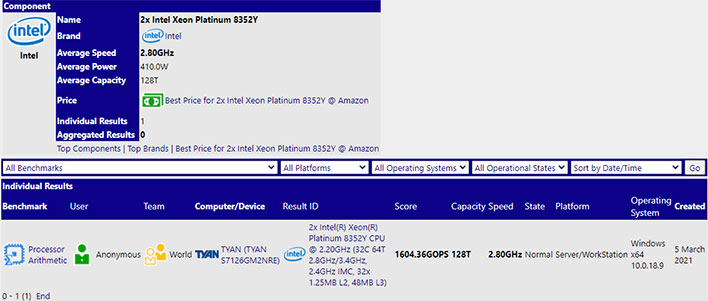Alleged Intel Ice Lake-SP 10nm Xeon Platinum 8352S And 8352Y 32-Core CPU Benches Leak

The server wars are heating up, with both AMD and Intel prepping new weaponry for the lucrative battlefield. According to Intel, its 3rd Gen Xeon "Ice Lake-SP" Xeon Platinum processors bring the boom and include "revolutionary new technologies." While we wait for a proper launch, two upcoming Ice Lake-SP chips have poked their heads into a benchmark database.
The two listings appear over at SiSoftware's SANDRA database, one of which contains some bench results for a pair of Xeon Platinum 8352Y server processors, and the other for a single Xeon Platinum 8352S processor. In terms of each one's specifications, they are pretty much identical, except the Y variant supports dual-socket configs and the S model supports quad-socket configs.
According to the above listing, the unreleased Xeon Platinum 8325S is a 32-core/64-thread processor with a 2.2GHz base clock and a max 3.4GHz turbo clock. It also boasts 48MB of L3 cache and 40MB of L2 cache. As we will see in a moment, these are the same specs as the Xeon Platinum 8325Y.
Looking at the benchmark data, the Xeon Platinum 8325S scored 813.40 GOPS in the Processor Arithmetic test, and 3,564.27Mpix/s in the Processor Multi-Media test. While it is problematic to compare scores of leaked benchmark runs, those results put Intel's upcoming Xeon chips a little ahead of the typical SANDRA scores for AMD's current generation EPYC "Rome" processors based on Zen 2.
Of course, AMD is prepping a new round of EPYC processors, having this week confirmed it will launch its EPYC 7003 Milan CPUs based on Zen 3 on March 15. So the real fun will begin soon enough.
The Xeon Platinum 8352Y listing shows a doubling of the Processor Arithmetic score, which is not surprising since there were two of these chips in this benchmark run (for a total of 64 cores and 128 threads).
How the performance comparison actually shakes out remains to be seen, but in the early going, Intel has thrown out some lofty claims. Specifically, it shared its own internal benchmark data showcasing a pair of unspecified 32-core Ice Lake-SP processors crushing a pair of 64-core AMD EPYC chip. The caveat, as you might have guessed, is that the workloads leveraged AVX-512 extensions.
Incidentally, rumor has it AMD's eventual Zen 4 EPYC Genoa CPUs will adopt AVX3-512 and Bfloat16 instructions, and if so, it will level the playing field in certain workloads that have traditionally favored Intel chips.



